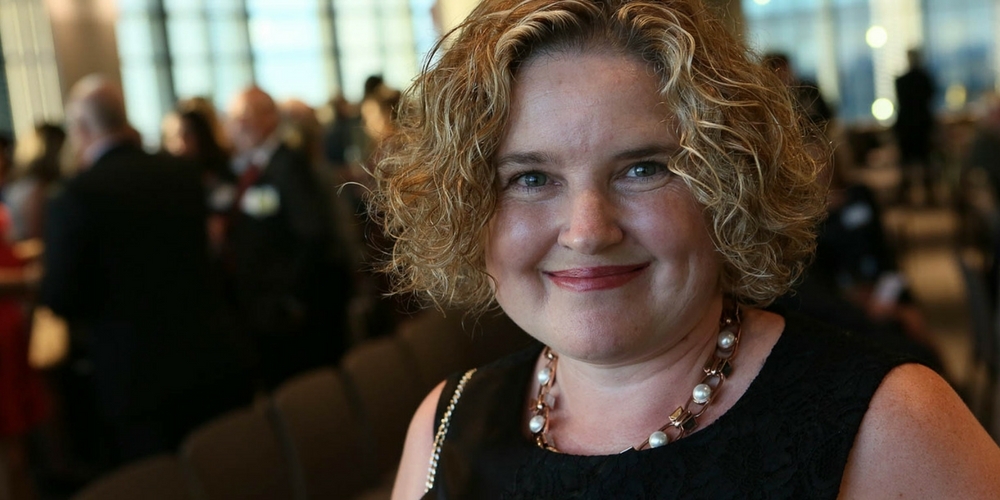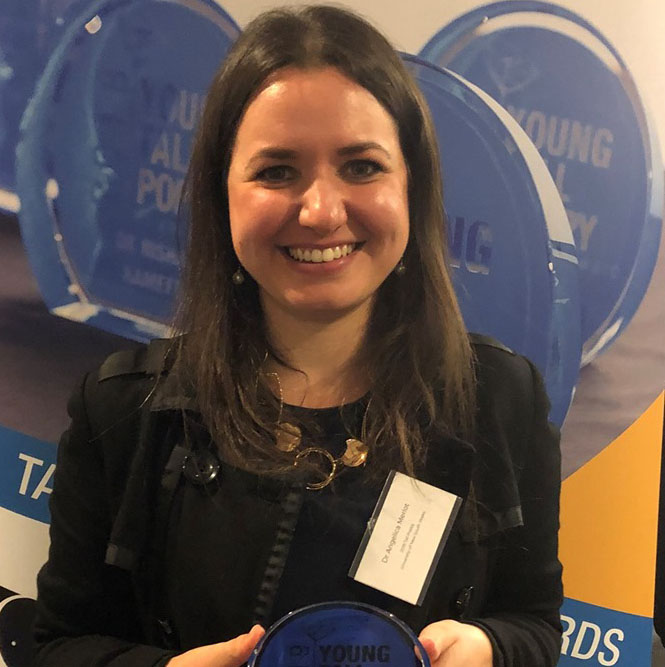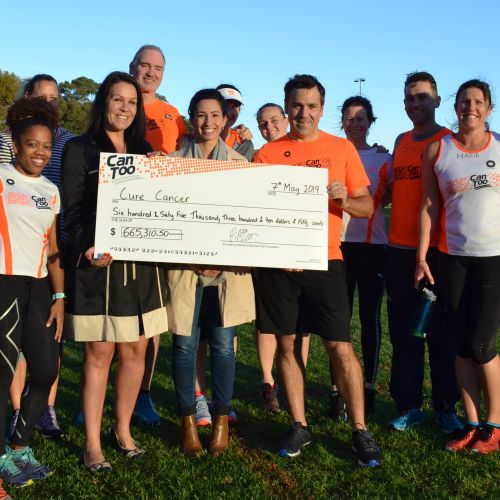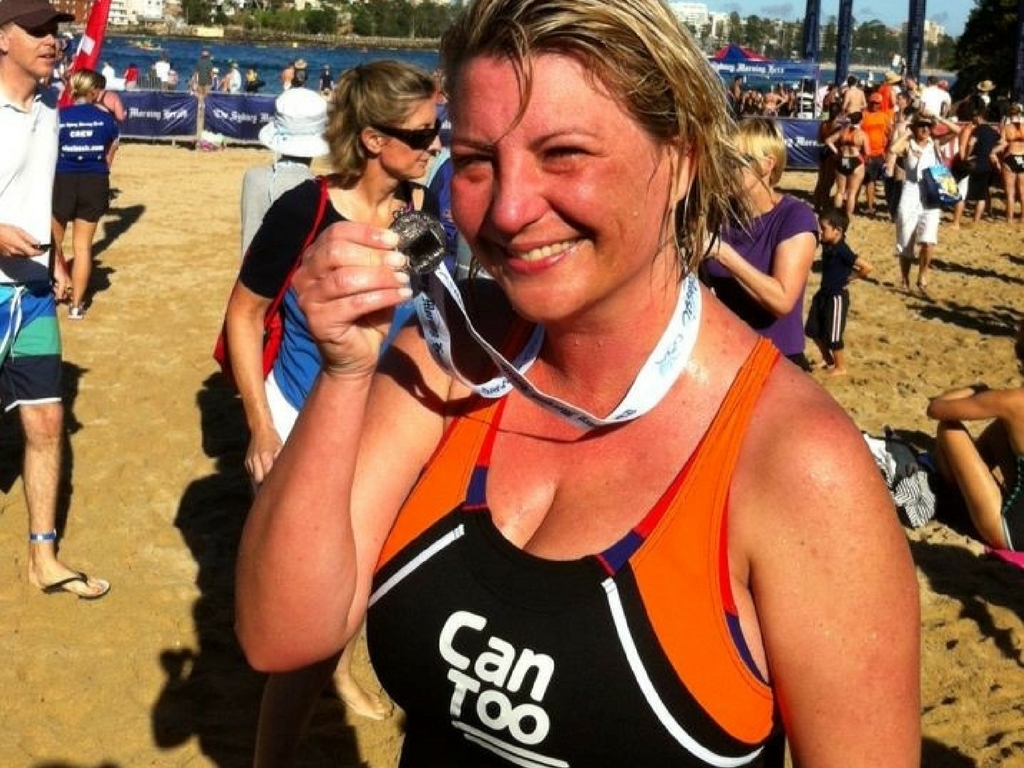
Cure Cancer Australia is proud to profile a recent breakthrough, led by Dr Phoebe Phillips from UNSW’s Lowy Cancer Research Centre. Phoebe's team have developed a highly promising technology to deliver gene-silencing drugs to treat pancreatic cancer – the most chemo-resistant and deadly cancer in Australia.
Nanomedicine could be the key to delivering improved treatment options
When tested, the new nanomedicine resulted in a 50% reduction in the growth of tumours and reduced the spread of pancreatic cancer.
The UNSW-led research, published in the Biomacromolecules journal, provides new hope for pancreatic cancer patients, most of whom succumb to the disease within 3-6 months of diagnosis.
Phoebe said "It was devastating for my clinical colleagues when they had to tell pancreatic cancer patients that the best chemotherapy drug available could prolong life by only 16 weeks."
Scar tissue in pancreatic cancer is one of the reasons treating this deadly cancer is so difficult.
"A major reason for the lack of response to chemotherapy is that pancreatic tumours have an extensive scar tissue which makes up to 90% of the tumour,” Phoebe says.
“This scar causes pancreatic cancer cell chemotherapy resistance and is a physical barrier to chemotherapy drug delivery to tumours."
"We recently identified a key promoter of tumour growth, cancer spread and chemo-resistance in pancreatic tumours called βIII-tubulin. Inhibition of this gene resulted in a 50% reduction in tumour growth and reduced the spread of the cancer in tests. The problem with therapeutically targeting this gene is that it is difficult to deliver drugs to it. To overcome this problem, Phoebe and her team have developed a nanomedicine which consists of a state-of-the-art nanoparticle that can package small RNA molecules (DNA photocopies of cells) and greatly inhibit βIII-tubulin."
The researchers have shown that their novel nanoparticle can deliver therapeutic doses of small RNAs to pancreatic tumours in mice, despite the presence of scar tissue, and successfully inhibit βIII-tubulin.
The real heroes in the fight against pancreatic cancer
“The significance of our nanomedicine technology lies in its potential to inhibit any tumour-promoting gene or a cocktail of genes personalised to the genetic profile of a patient’s tumour,” Dr Phillips said.
“This work has the potential to develop new therapies to target this drug-resistant cancer and improve the effectiveness of current chemotherapies, which may increase survival and quality of life for pancreatic cancer patients.”
The research is a result of a collaboration with two of Australia’s leading chemists, UNSW Associate Professor Cyrille Boyer and Professor Tom Davis from Monash University. Also on the team as key partners are two Cure Cancer Australia Alumni, UNSW Professor Maria Kavallaris (funded in 1999 & 2003) and Dr Joshua McCarroll (funded in 2011) from the Children's Cancer Institute.
This research was supported by the National Health and Medical Research Council and Cancer Council NSW. Dr Phoebe Phillips was funded by the Can too Foundation with Cure Cancer Australia in 2009 and 2012-13 for her novel work on pancreatic cancer. It is always Cure Cancer Australia’s hope that early-career researchers, funded for 1 or 2 years, will use the results generated during their Cure Cancer Australia projects to attract further funding to continue their work. This is a perfect example of the success of our aims.
When asked about the impact that her series of Can Too-funded Cure Cancer Australia grants has had, Phoebe says that "without the support from the Can Too Foundation and Cure Cancer Australia, I couldn't have established my research team and make the progress we’ve made. It's one thing to have great ideas when you're young, but if nobody is willing to fund them, they will never come to anything. I'm grateful to the Can Too Foundation and Cure Cancer Australia who backed my ideas early in my career."
Dr Phoebe Phillips was funded by the Can Too Foundation with major beneficiary Cure Cancer Australia in 2009, 2012 and 2013. Can Too Foundation continues to fund Phoebe in collaboration with Cancer Council NSW as the head of a major research project in 2016.








